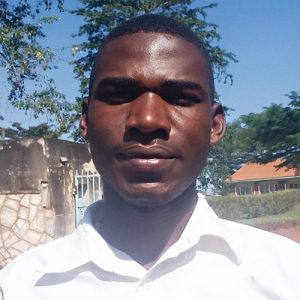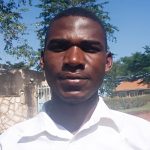When the borehole in Kabbo Village used to work, people here made multiple visits per day to get the water they needed. For the 245 people here, this conveniently located well made fetching water easy - until it broke down and was not fixed.
Now, people make just 1 trip to get water. That is because they have to walk for up to an hour to reach the nearest protected spring. Because the trip is so long, community members have to get all of the water they need for the day at 1 time.
The protected spring is distant from the major settlements and a lot of productive time is currently spent on the pursuit of clean and safe water by the households.
"Our drinking water condition has changed for the worse when Kabbo Borehole stopped working. The protected springs are far and dangerous for children and elderly people and women because it's far in the valley," shared Dorothy Rwolekere, a 73-year-old farmer.
"I am now old and can't walk the distance for water."
The borehole was constructed by the government in 2008. The community and the well's water user committee managed to support the well for a few years, paying for minor repairs when needed. But a major breakdown proved to be too expensive for the community to pay for, so now it sits unused.
The spring they now depend on is located more than a mile from the community. Access to the spring is also a major challenge especially to the children since it is located within a very steep valley. This spring is also affected by runoff which compromises its quality, especially during the rainy season.
"Going to the spring is far. I wish we could fix the borehole," said 10-year-old Gloria.
"My problems would be solved."
Here’s what we’re going to do about it:
Rehabilitated Well
We are going to restore water to the broken-down borehole. When this borehole is restored to its original status, this will provide the community with easy access to clean and safe water. We will remove the old pump, clear out the well, reinstall a new stainless steel pump, and build a new well pad to protect the water.
Training
Training’s main objectives are the use of latrines and observing proper hygiene practices since these goals are inherently connected to the provision of clean water. Open defecation, water storage in unclean containers, and the absence of handwashing are all possible contaminants of a household water supply. Each participating village must achieve Open Defecation Free status (defined by 1 latrine per household) before the pump installation for a shallow hand-dug well.
This social program includes the assignment of 1 Community Development Officer (CDO) to each village. The CDO encourages each household to build an ideal homestead that includes a latrine, handwashing facility, a separate structure for animals, rubbish pit, and drying rack for dishes.
We also implement the Community-Led Total Sanitation (CLTS) approach with each of our village partners. This aims to improve the sanitation and hygiene practices and behaviors of a village. During these sessions, village leaders naturally emerge and push the community to realize that the current practices of individual households – particularly the practice of open defecation – are not only unhealthy but affect the entire village. CLTS facilitates a process in which community members realize the negative consequences of their current water, sanitation, and hygiene behaviors and are inspired to take action. Group interactions are frequent motivators for individual households to build latrines, use the latrines, and demand that other households do the same.
Improved Sanitation
The aim is that all households own an improved latrine. Many households do not use a latrine but use the bush. Due to open defecation, feces are spread all over the village. This leads to waterborne diseases and contamination of groundwater and surface water. Our aim is that the community is able to live a healthy life free of preventable diseases. We endeavor that at the end of our presence in the community, people will have both access to sustainable, clean water and access to sanitation. We have now organized families to form digging groups for latrine construction, and empowered them with tools they will need.

 Borehole Well and Hand Pump
Borehole Well and Hand Pump




























